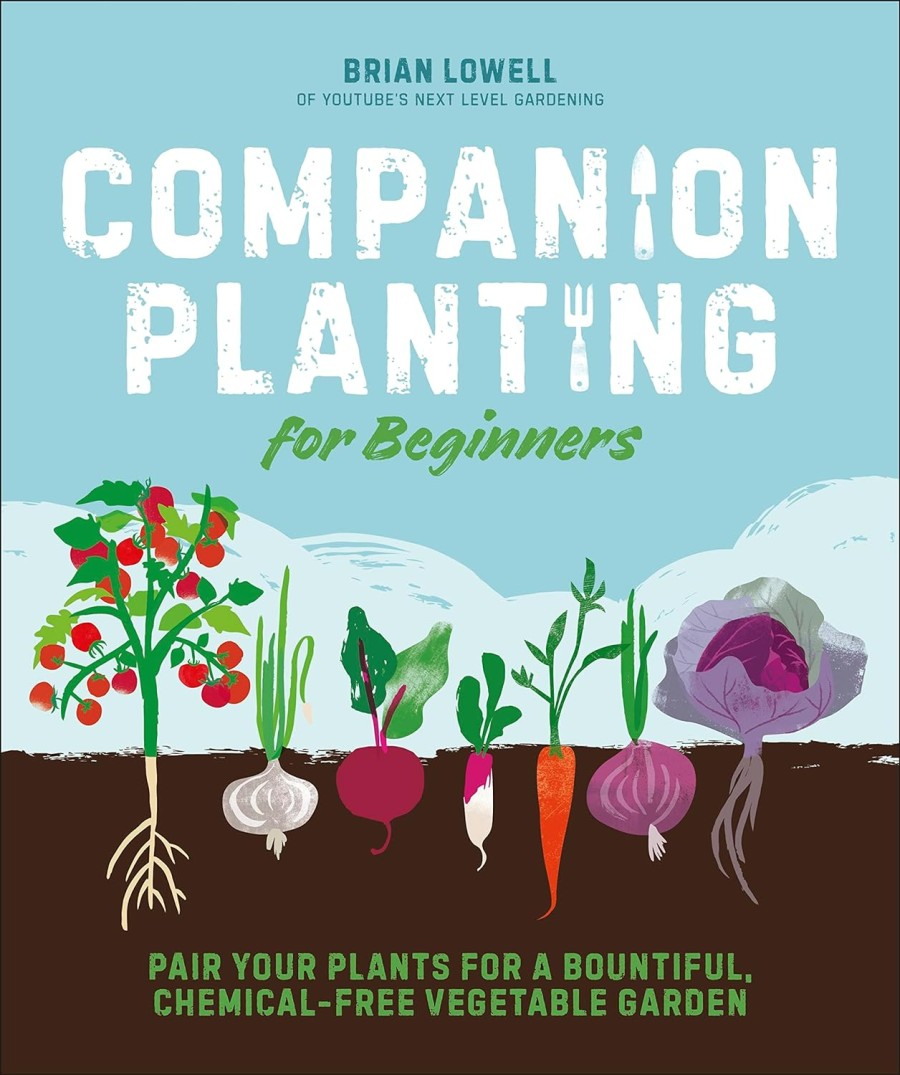
Companion planting is the natural way to deter unwelcome visitors to your garden, to avoid the use of pesticides. This is basically nature’s way of avoiding ‘monocultures’ which also results in healthier soil and means planting one plant next to another, to help each other along!
Learn how to make gardens safe for pets (includes indoor plants to avoid). Avoid facing indoor foliage to gardens, to help stop birds flying into windows.
Companion Planting for Beginners is the ultimate illustrated guide to know which plants to grow alongside others. From tomatoes (to help protect carrots) or mint (that can repel slugs near lettuce), companion planting can also improve soil quality and increase yield. In this book, an organic gardener offers a chart of plant pairings for common garden vegetables, plus troubleshooting tips and advice on setting up the perfect vegetable garden.
Many companion plants are toxic to pets (above) so only choose those suitable. Ones to avoid include alliums (garlic, onion, leeks, chives, shallots), borage and all bulbs/marigolds.
- Plant beans alongside spinach & tomatoes
- Plant horseradish next to potatoes
- Plant pumpkins next to sunflowers
- Plant asparagus with parsley & tomatoes
- Plant runner beans near strawberries, radish & celery
- Plant turnips near broccoli & peas
- Thyme helps to deter blackfly on roses.
- Nasturtiums near beans (to deter aphids, though ladybirds eat them)
- Alliums (garlic, onion, shallots, chives) near carrots (to stop carrot fly). Mint can also be used (but in a pot, it can get out of control).
- Mint with brassicas (deters flea bettles from laying eggs).
- Marigolds are good to deter whitefly on tomatoes.
- Borage (taste like cucumber) improve flavour of strawberries
Avoid ‘negative companion planting’ (like planting tall and short plants next to each other, as one will block out the light). Don’t grow drought-tolerant plants next to ones that need a lot of water. Allelopathic plants are ‘negative’ in that plants release chemicals that don’t help plants. For instance, walnut trees usually don’t grow well with other plants, nor do garlic/onions alongside peas, nor mint/onions alongside asparagus.






